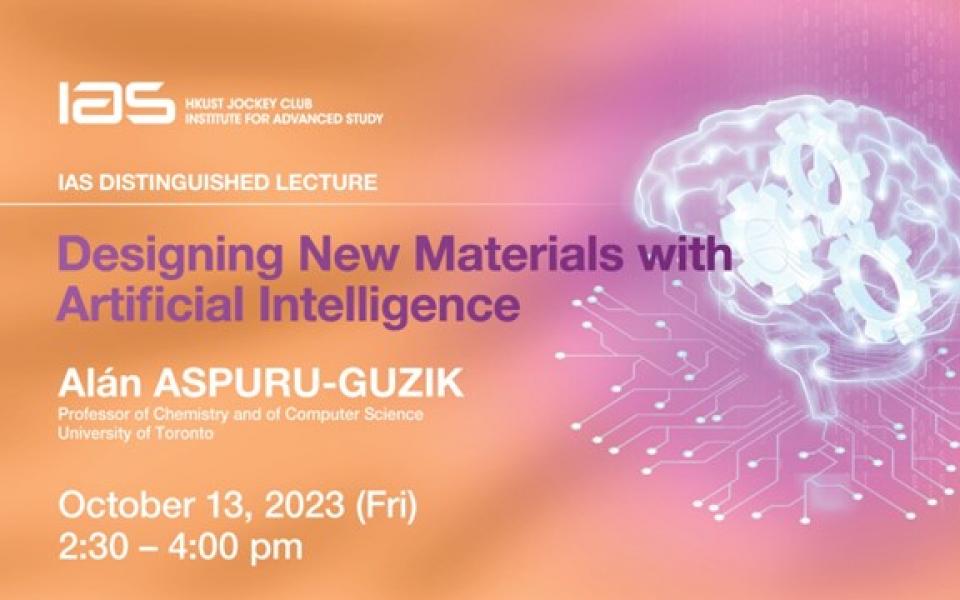IAS Distinguished Lecture - Designing New Materials with Artificial Intelligence
Supporting the below United Nations Sustainable Development Goals:支持以下聯合國可持續發展目標:支持以下联合国可持续发展目标:
Abstract
Organic flow batteries promise to be a relevant metal-free storage solution for electrical energy. Introduced by Michael Aziz and Roy Gordon in 2014, they have been progressing steadily. The speaker originally helped Prof. Aziz and Prof. Gordon with the calculations for predicting the first generation. It has been almost ten years since their introduction. The speaker recently re-started vigorous efforts in his laboratory to accelerate organic flow battery research. To that effect, they employ calculations, automated synthesis and characterization to increate the design-make-test-analyze cycle. In this lecture, the speaker will present his group’s published and unpublished results in this area. He will conclude with a prospectus of the future of automated science.
About the speaker
Prof. Alán Aspuru-Guzik is a Professor of Chemistry and of Computer Science at the University of Toronto and is also the Canada 150 Research Chair in Theoretical Chemistry and a Canada CIFAR AI Chair at the Vector Institute. He is a CIFAR Lebovic Fellow in the Biologically Inspired Solar Energy program. Prof. Aspuru-Guzik also holds a Google Industrial Research Chair in Quantum Computing. He is the Director of the Acceleration Consortium, a University of Toronto-based strategic initiative that aims to gather researchers from industry, government and academia around pre-competitive research topics related to the lab of the future.
Prof. Aspuru-Guzik began his independent career at Harvard University in 2006 and was a Full Professor at Harvard University from 2013-2018. He received his BSc from the National Autonomous University of Mexico (UNAM) in 1999 and obtained a PhD from the University of California, Berkeley in 2004, where he was also a postdoctoral fellow from 2005-2006.
Prof. Aspuru-Guzik conducts research in the interfaces of quantum information, machine learning and chemistry. He was a pioneer in the development of algorithms and experimental implementations of quantum computers and quantum simulators dedicated to chemical systems. He has studied the role of quantum coherence in the transfer of excitonic energy in photosynthetic complexes and has accelerated the discovery by calculating organic semiconductors, organic photovoltaic energy, organic batteries and organic light-emitting diodes. He has worked on molecular representations and generative models for the automatic learning of molecular properties. Currently, he is interested in automation and “autonomous” chemical laboratories for accelerating scientific discovery.
Among other recognitions, Prof. Aspuru-Guzik received the Google Focused Award for Quantum Computing, the Sloan Research Fellowship, The Camille and Henry Dreyfus Teacher-Scholar award, and was selected as one of the best innovators under the age of 35 by the MIT Technology Review. He is an elected fellow of the American Physical Society and an elected fellow of the American Association for the Advancement of Science (AAAS) and received the Early Career Award in Theoretical Chemistry from the American Chemical Society.
Prof. Aspuru-Guzik is editor-in-chief of the journal Digital Discovery as well as co-founder of Zapata Computing and Kebotix.
For Attendees' Attention
Seating is on a first come, first served basis.
